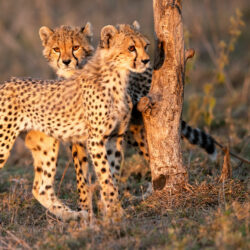Rabies Vaccination Campaigns for World Rabies Day
-
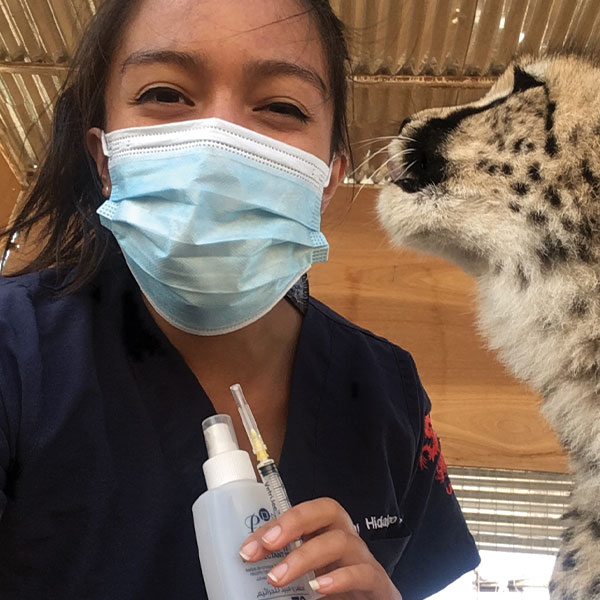
- by Anahi Hidalgo September 28, 2022
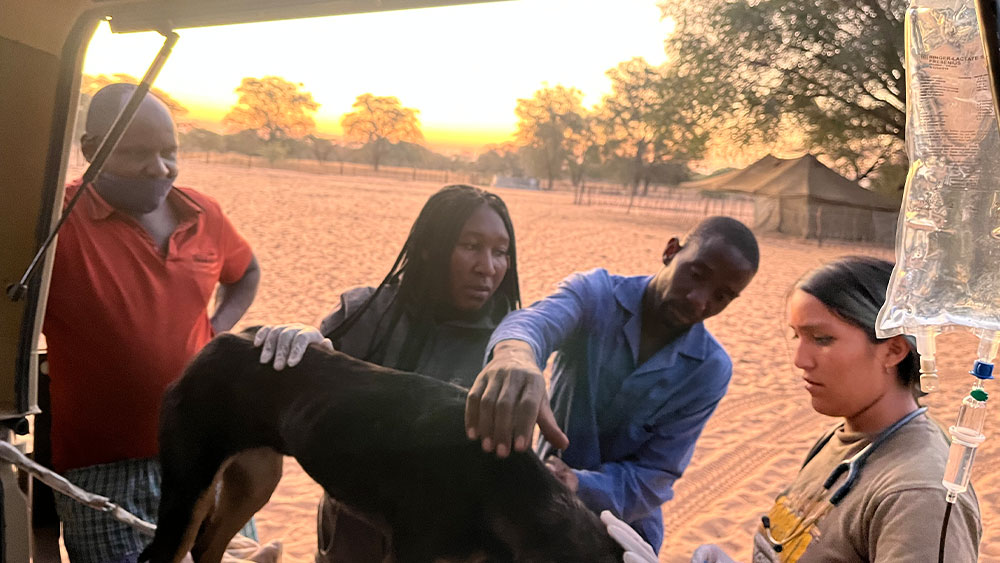
September 28th is World Rabies Day! It’s a day to raise awareness about the deadly and debilitating disease. Organizations and veterinary practices around the world use this annual celebration to promote prevention by highlighting the need to vaccinate dogs and cats. Since I started studying veterinary medicine years ago, I have been involved in major rabies vaccination campaigns in my home country, Ecuador. These campaigns are part of various government projects to eliminate rabies transmitted to humans by domestic dogs and are performed on an annual basis across the entire country.
I feel so grateful and full of joy to be able to continue contributing to Public Health in other parts of the world, especially here in Africa which is one of the more affected continents by this lethal disease. In Namibia, we have lost an estimated of 242 humans due to rabies during the past two decades, especially in the Northern Communal Areas (NCAs). In addition, accordingly to Global Alliance for Rabies Control, the dog vaccination coverage in Namibia is still very low.
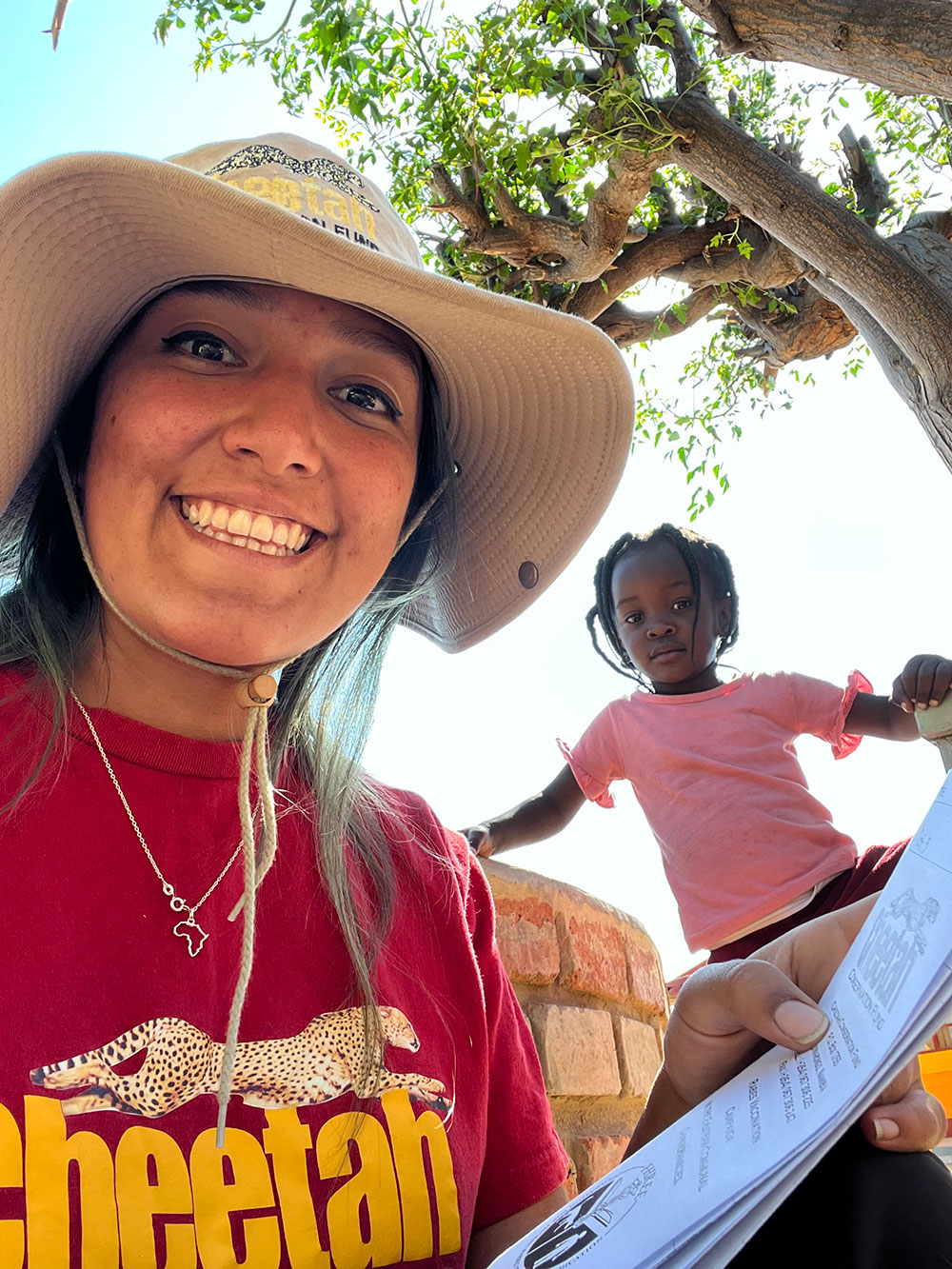
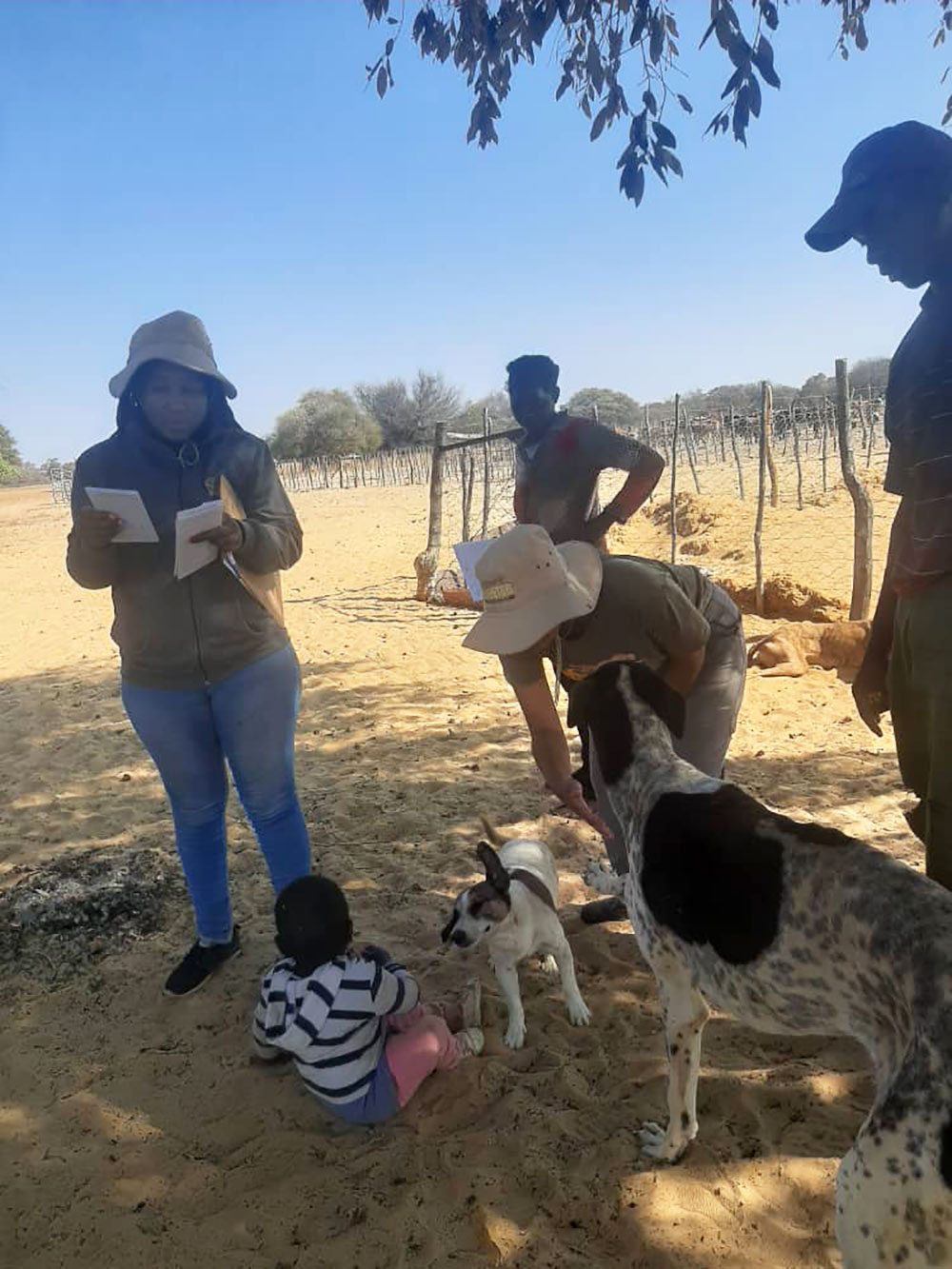
Cheetah Conservation Fund (CCF) has been working in Namibia since 1990 with a mission and vision to conserve and coexist in harmony with cheetahs and the biodiversity that surround us. CCF has been conducting a One Health program in the Greater Waterberg Landscape (GWL) for a couple of years now, providing educational training to farmers promoting animal health and good husbandry practices, as well as conducting rabies vaccination campaigns. This year, I am delighted to be part of the rabies campaign team, which has the objective of visiting around 75 farms in the GWL and vaccinating around 1 000 dogs and cats to prevent the spread of rabies.
This task has not been easy, but we continue to work hard to help these communities in need and consequently reduce the wildlife conflict in the area, thereby protecting Cheetahs, African Wild Dogs, Leopards, Kudus, Steenbock, and many other wildlife species in the area.
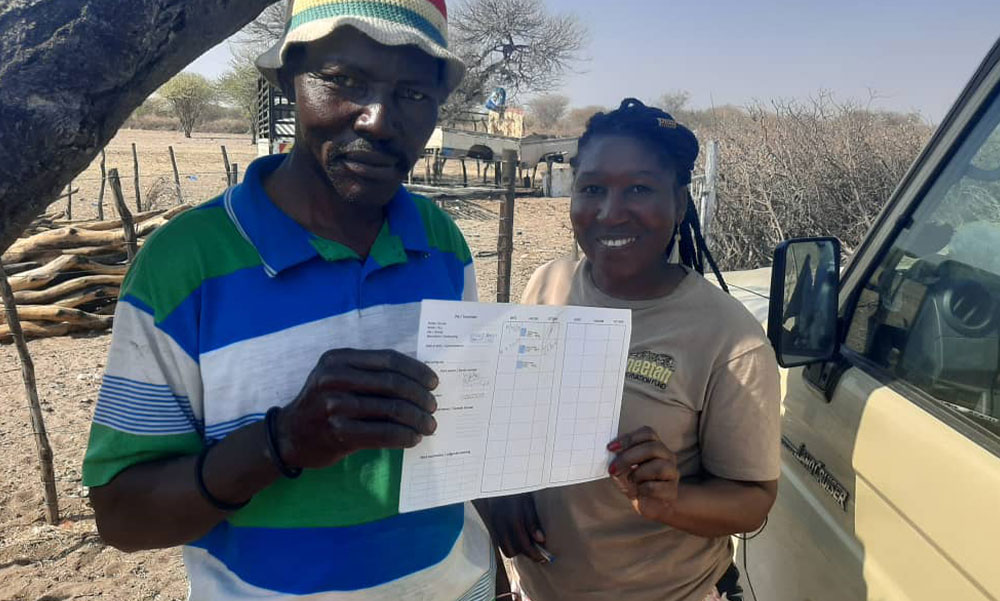
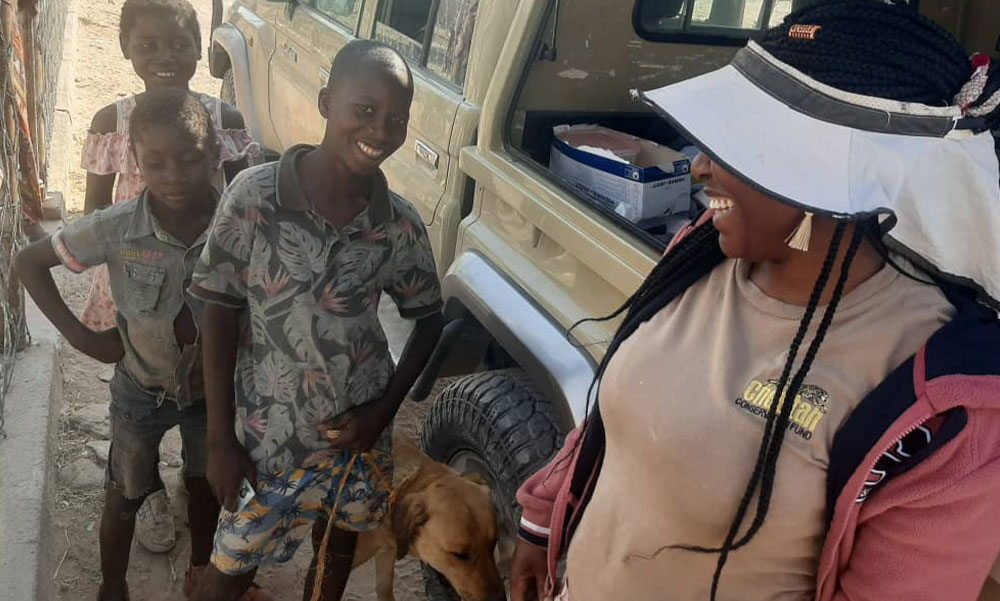
During these trips, it takes us almost one day to travel and set up camp. Then we wake early every day and drive to the different farms/communities, establishing communication channels between farmers and CCF, educating about animal health and better livestock practices to reduce the wildlife conflict, vaccinating their dogs and cats, and checking and treating sick animals. Then when the journey of the day is concluded, we return to camp to cook and rest for the next day’ adventure. We meet a large variety of people and personalities, some very friendly, and others not so happy to have to coexist with wildlife. Like peoples’ personalities, the dogs and cats have their own personalities as well – some are very friendly and social, whilst others are afraid or aggressive. However, we always try our best to gain the trust of them trust and their owners to be able to carry out the vaccinations. Sometimes the secret is to bribe the animals with small snacks, or to distract them with lots of love, and before they even realize it, the vaccination is delivered and everything it’s over!
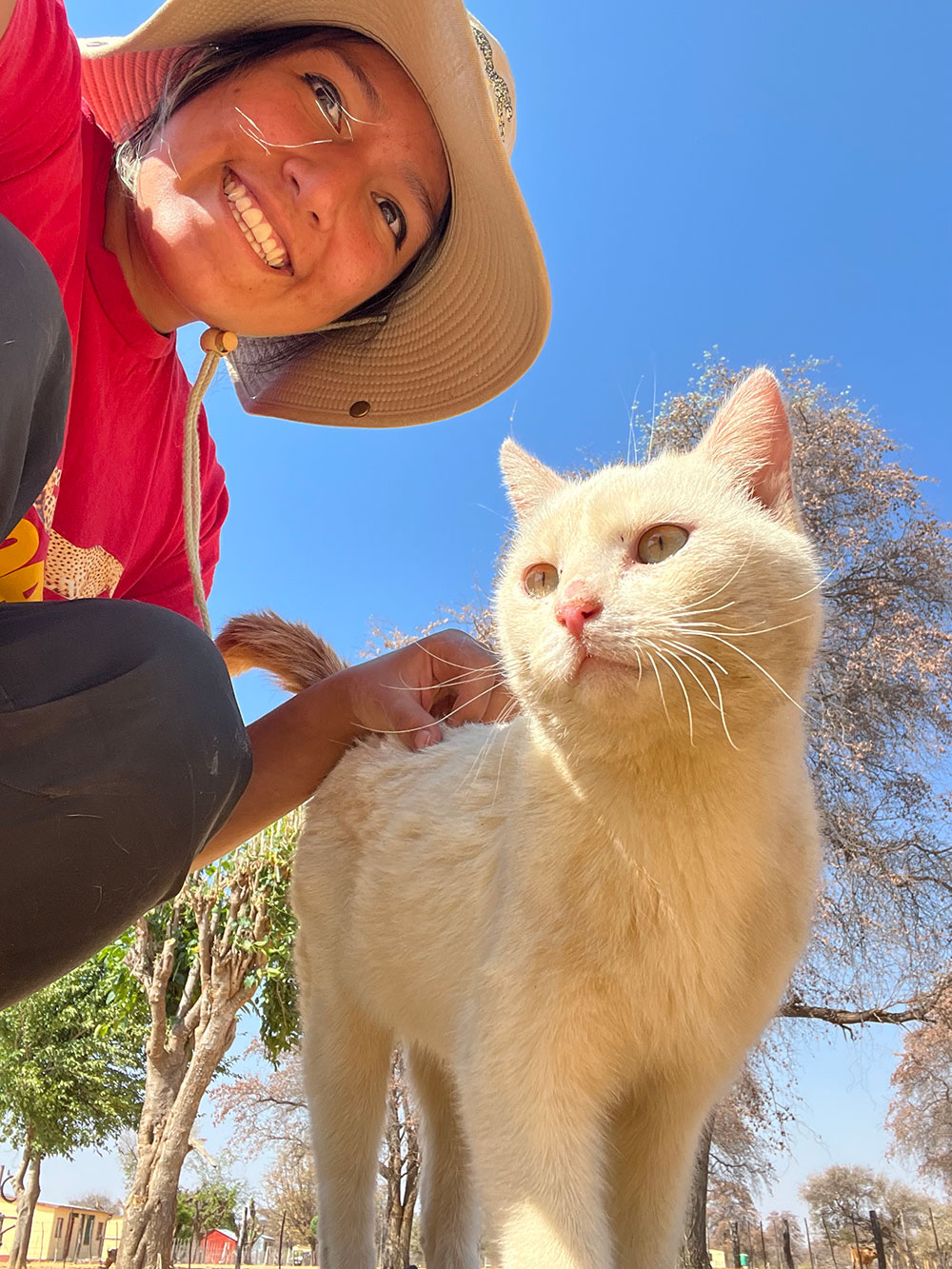
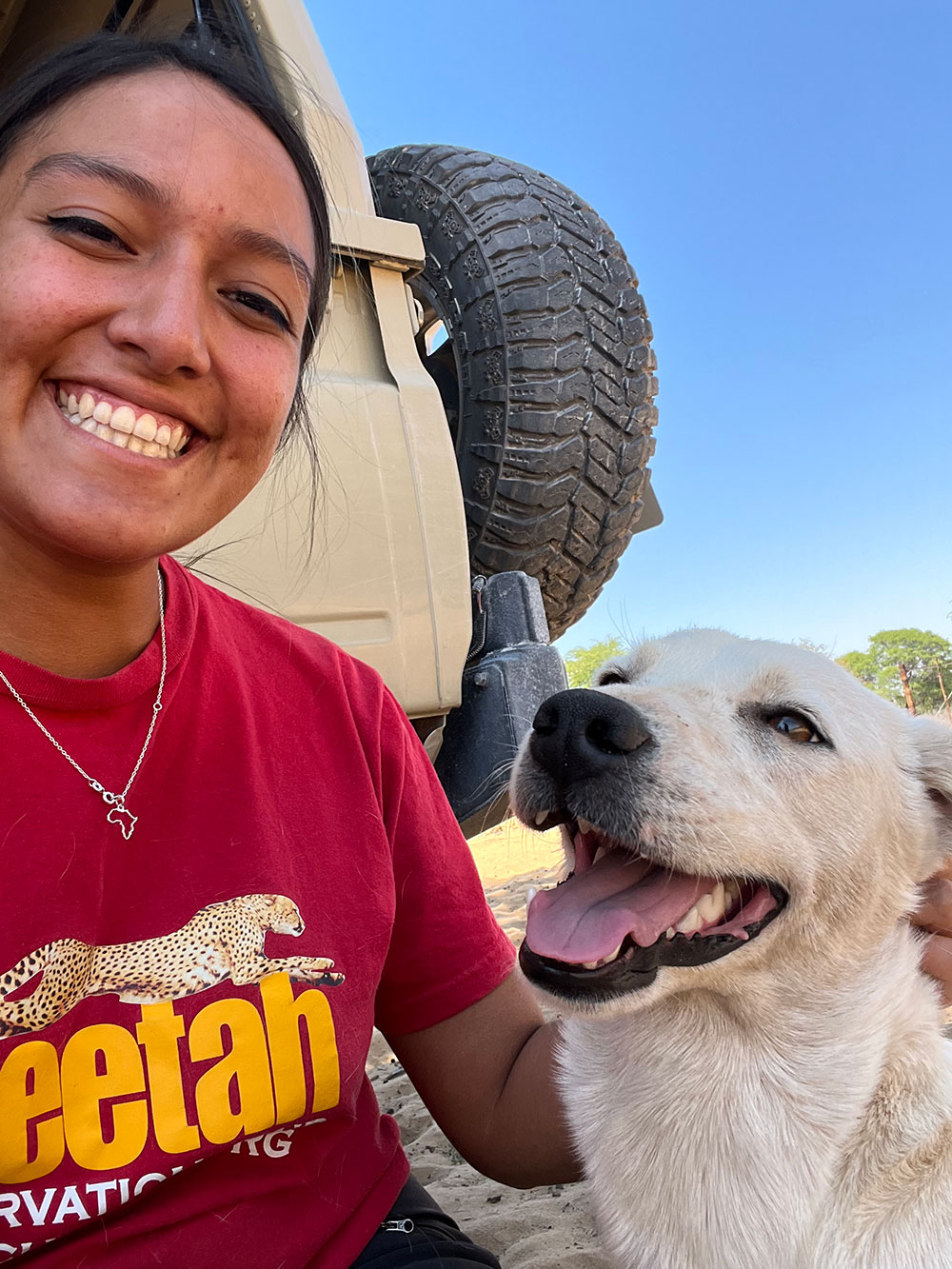
It is such a rewarding feeling every time to see that the owners bring their animals to be vaccinated so willingly, as well as how grateful the owners are for our support. We also love it when owners get involved and ask questions on how to improve their animal’s health, how to reduce their conflict with wildlife, and especially when they are willing to learn and put in practice this new knowledge. For example, Mr. Vateleni Hamutenya from the Okamatapati area, made the effort to bring his animals in a truck just to be vaccinated. He also surprised us with their vaccination cards from 2019 (the year that the vaccination program officially started), having already 4 consecutive years of rabies vaccinations in his livestock guardian dogs and his house dogs. Stories like this one reassure us of the great impact and appreciation that the community has towards CCF and our ongoing projects.
This is how we are contributing to the World Health Organization (WHO), the World Organisation for Animal Health (OIE), and many other organizations in their Global Strategic Plan Zero by 30 . This strategy aims to accomplish zero rabies deaths in humans by 2030. At CCF we are committed to the strategy and will do our best to succeed in such an incredible objective.
Please join us and share this blog to help create awareness about rabies with your family, friends, and communities. Also please consider making a donation to help CCF continue our work vaccinating animals throughout the cheetah’s range. Together, we can reach the objective of “One Health, Zero deaths”.
Related Reading
-
February 1, 2024
Celebrate Valentine’s Day By Helping CCF to Name a Cheetah Cub -
January 4, 2024
Wish a Happy Birthday to Dr. Laurie Marker


